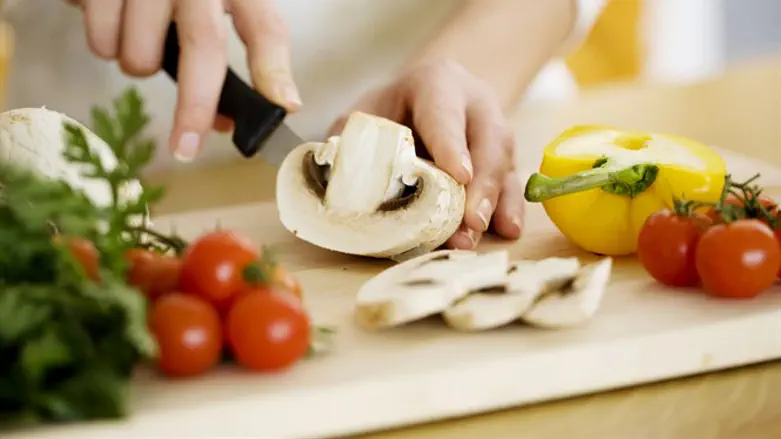
One of the major problems facing society's poorer sectors is that not only do they suffer a lack of food, they are also eating the wrong foods. This leads to issues obesity, diabetes and other diet-related health problems.
Combating this trend is a central part of Colel Chabad’s Food Security Program. In this program, beneficiaries are provided with food staples and fresh fruits and vegetables, as well as educational resources to help them eat more healthily and manage their homes in a sustainable manner.
Colel Chabad is Israel’s longest running social services organization, helping the needy in Israel since 1788.
Most recently, Colel Chabad and Leket Israel launched a cooking course designed to educate homemakers. In the course, participants learn how to integrate healthy ingredients into their recipes and ensure that they are utilizing the healthy foods provided to them.
Leket Israel is one of the leading organizations feeding Israel's needy and providing them with healthy and locally sourced ingredients. The Food Security Project is managed jointly by Leket Israel, Colel Chabad, and Israel's Welfare Ministry.
The course is taught by dietitian Sivan David, who focuses on how specific products can be used to create both healthy and tasty meals. According to David, many homemakers are only familiar with the traditional ingredients that they grew up with. They therefore disregard products like quinoa and whole grains, which can act as welcome nutritional supplements and are also more economical than proteins such as red meat.
The classes also shows how ideal diets require an investment in all meals, and that the body requires different energies at different hours for maximum productivity.
Food Security Program Director Hila Yadai, who is running the pilot class in Yavneh, said she is deeply encouraged by the response from the participants.
“Already at the second class, we had some of the women come over to us and mention the new foods they prepared based on the first class. Some proudly told us how they are drinking much more water instead of juice. These classes not only give women an enjoyable time learning something new, they will [also] greatly impact the health and happiness on their families at home.”
“It gives us a real sense of fulfillment that we aren’t just handing out food but giving them the tools to better manage their kitchens and their budgets.”
Sample meal preparations taught in the course include:
- Breakfast of whole grain breads with fresh vegetables, tahini, tuna salad and a hard boiled egg
- Salmon with a mustard-lemon vinaigrette and a side salad
- Quinoa with lentils and light dressing
In February, Leket and Chabad's Eshel soup kitchen worked with Israel's Welfare Ministry to provide 500 shekels food vouchers to needy families, including 250 NIS worth of discounted fruits and vegetables.
